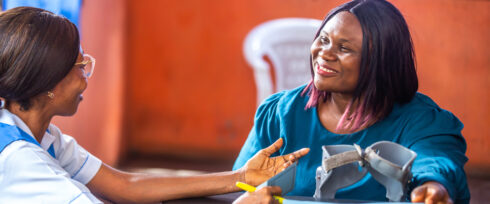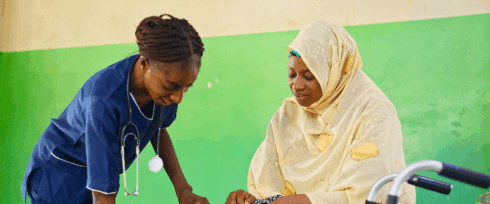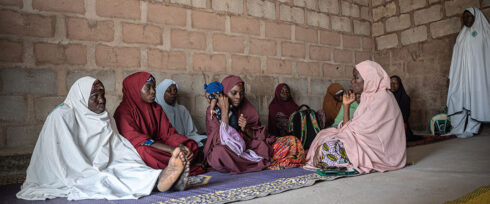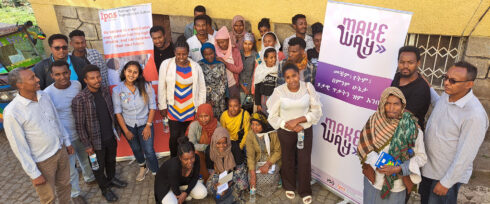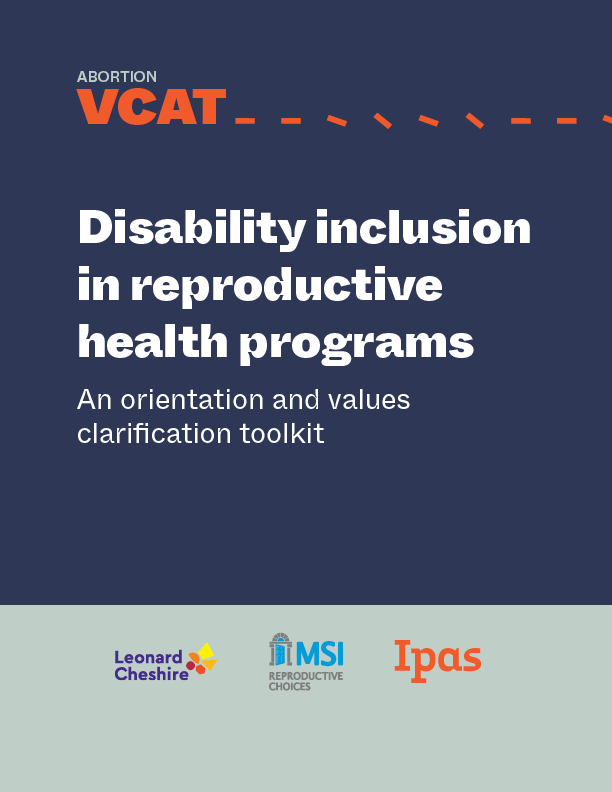“Women with disabilities are often excluded in information on sexual and reproductive health, including safe abortion and contraception.”
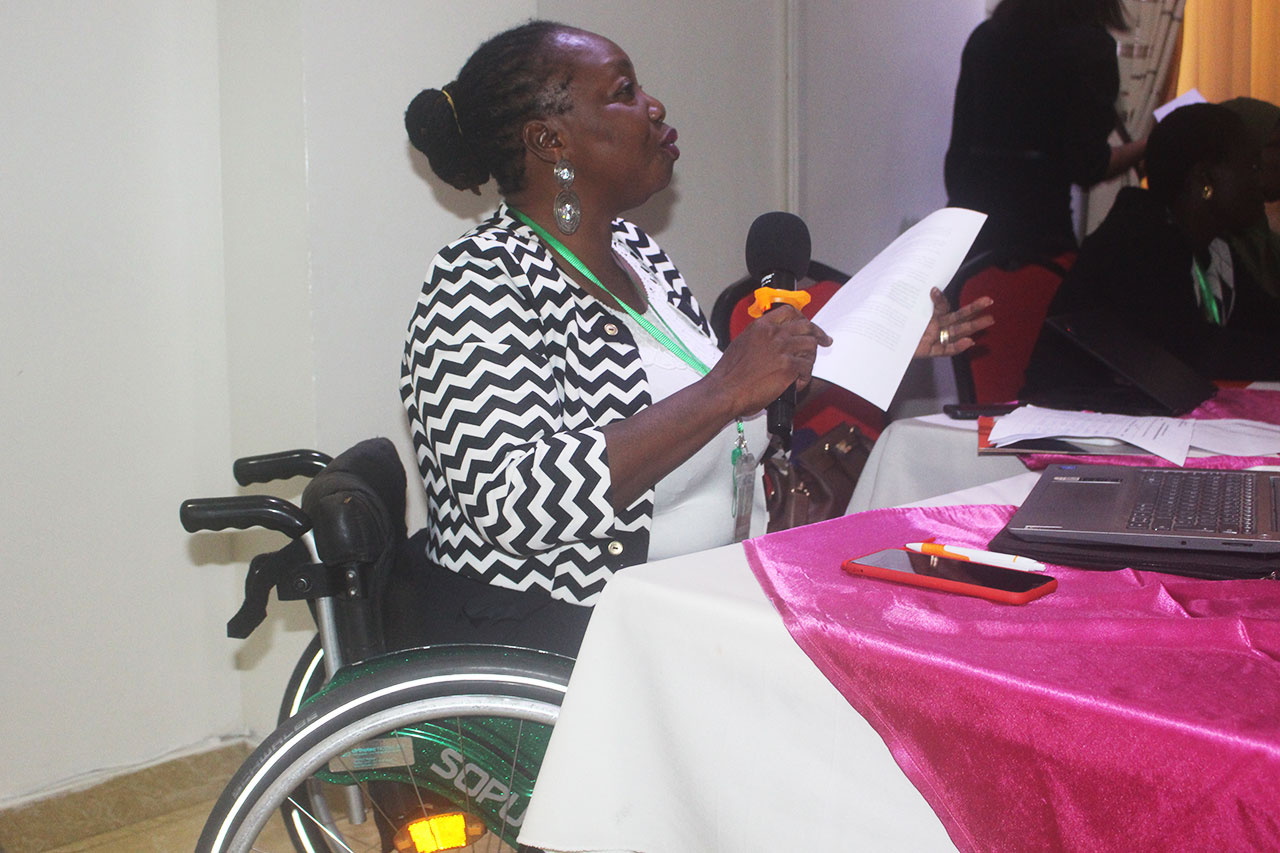
Disability Justice is reproductive justice.
The term “disability justice” was coined in 2005 by the Sins Invalid collective—a group of disabled queer women of color—as a more expansive and intersectional framework for disability rights. Rooted in collective liberation, their “10 principles of disability justice” center the leadership of those most impacted and addresses ableism in connection with racism, sexism, colonialism, and other systems of oppression.
Excluded. Stereotyped. Silenced.
More than one in five women globally has a disability. Yet across the world, people with disabilities are routinely denied access to health care, with devastating consequences for their autonomy and well-being.
Here’s how reproductive health systems continue to fail them:
- Health information is often inaccessible and lacks sign language interpretation, braille materials, or digital access tools.
- Harmful myths and stereotypes persist—like the false belief that people with disabilities are asexual or unable to parent.
- Forced sterilization still occurs in many countries.
- Clinics lack ramps, adjustable exam tables, and trained providers, making facilities impossible to navigate.
- Disability stigma, which includes stigma around the sexuality of people with disabilities, fuels isolation and discourages people from seeking care.
Our commitments: From promises to power shifts
We’re making disability justice a core part of how we work across countries, programs, and teams.
- Co-creating programs with organizations of persons with disabilities
- Making our training tools and digital resources accessible
- Auditing our internal systems through a gender equality and social inclusion lens
Read our disability justice commitments and see how we’re turning them into action →
Centering local leadership
Disability justice must be locally led. Ipas works alongside organizations of persons with disabilities across Africa, Asia, and the Americas to develop inclusive, sustainable reproductive health solutions. Here are some examples:
Nigeria
We’re co-designing programs with the Deaf Women Association of Nigeria and Advocacy for Women with Disabilities to ensure accessible abortion care.
Ethiopia
Through the Make Way Program, we’re working with the Ethiopian Women with Disabilities National Association to expand youth access to sexual and reproductive health services.
Building inclusive health systems
We train health workers to deliver care that affirms the dignity and agency of people living with disabilities. Our resources help dismantle ableism in clinics, in curricula for health professionals, and in community outreach.
Pathways to disability justice: Our global impact in 2024
In 2024, Ipas deepened its commitment to advancing disability inclusion in sexual and reproductive health and rights addressing the unique barriers faced by people with disabilities. By working with local partners across four countries, Ipas developed inclusive programs that enhanced access and improved awareness in local communities. Here are four examples:
- Nigeria: Ipas partnered with organizations to integrate disability inclusion into sexual and reproductive health and rights programs, reaching 230 women with disabilities and training 131 health-care workers to provide inclusive care. The intervention also improved accessibility at 14 primary health-care centers with 6 additional facilities made more disability friendly.
- Democratic Republic of Congo: In collaboration with organizations like Enable the Disable Action and Voice of Women, Ipas raised awareness about sexual and reproductive health and safe abortion services in camps for people displaced by conflict. Through awareness campaigns, the program reached 50 deaf women in Tshopo by enhancing their knowledge of gender-based violence prevention, decisionmaking, and bodily autonomy.
- Ethiopia: Through the Make Way consortium program, Ipas worked with local group Ethiopian Women with Disabilities National Association to promote sexual and reproductive health accessibility for women and girls with disabilities. This campaign reached 5,646 individuals, raised awareness of disability-inclusive sexual and reproductive health care, and trained 29 youth council members to advocate for inclusive practices.
- Bangladesh: In partnership with the United Nations Population Fund, Ipas supported service delivery to people with disabilities across health facilities. As a result, 14 people with disabilities received family planning services from Ipas-trained providers, ensuring equitable access to essential care.


